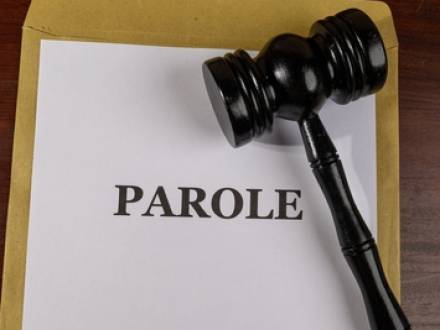Parole Barriers to Employment in Texas
 For those on parole, finding steady employment can be crucial to rebuilding and regaining their lives. Unfortunately, parole conditions (Title 4, Subtitle G, Chapter 508) and state regulations may place unexpected limits on the types of jobs parolees are allowed to accept. Beyond the obvious restrictions of working in childcare or law enforcement, some other occupations with hidden barriers can derail a job search.
For those on parole, finding steady employment can be crucial to rebuilding and regaining their lives. Unfortunately, parole conditions (Title 4, Subtitle G, Chapter 508) and state regulations may place unexpected limits on the types of jobs parolees are allowed to accept. Beyond the obvious restrictions of working in childcare or law enforcement, some other occupations with hidden barriers can derail a job search.
Parolees who are expecting these restrictions can better avoid setbacks while planning for realistic job opportunities. Speaking to an experienced Austin, TX parole attorney can help you get on the right employment path early on in the process.
Why Does Employment Matter in Texas Parole Situations?
In many cases, finding and maintaining employment is a condition of parole, so the parolee has little input into whether or not employment is necessary. Failure to adhere to the condition of maintaining employment can lead to a parole violation and even revocation of parole. Both the parole board and the state of Texas believe holding down a job plays a crucial role in the parole process for the following reasons:
- Employment helps the individual reintegrate into society.
- Holding a job demonstrates a commitment to rehabilitation and a willingness to be productive.
- Steady employment has been shown to lower the likelihood of re-offending.
- Having a job provides a legal means of financial support, reducing the likelihood of the parolee resorting to criminal activities to meet financial needs.
- A parolee with a steady job is less likely to rely on public assistance.
- Employment develops new skills and can promote a sense of belonging in the community.
Expected and Unexpected Job Restrictions for Parolees
As noted, most parolees are not surprised to find they cannot work with children or other vulnerable populations, have a job involving firearms or explosives, or work in law enforcement. They may, however, be surprised to find that there are a significant number of other jobs in Texas that are not likely to hire a parolee. These include:
- Rideshare drivers, including Uber, Lyft, and DoorDash, often reject parolees following a background check.
- Some parolees are restricted from crossing a state line while on parole, so they cannot drive a long-distance truck route.
- Parolees are usually barred from jobs that require professional licensing, including real estate agents, barbers, plumbers, massage therapists, tax appraisers, and many more.
- Even entry-level positions, such as home health aides, hospital janitors, and nursing assistants, may be off-limits for parolees.
- Banking, bookkeeping, and even retail jobs where cash-handling is necessary.
- The Texas Department of Aging and Disability Services prohibits some individuals with criminal records from employment in elder care.
What Texas Jobs Are More Likely to Be Parolee-Friendly?
Since virtually every employer conducts a background check before hiring, and parolees must obtain approval from their parole officer to accept a job, it can be challenging for parolees to find steady employment. Many parolees find jobs in construction, warehousing, food service, and landscaping. In some cases, a parolee may have taken advantage of a vocational program offered while in prison or after release, which can potentially give him or her an advantage in the search for a job.
Contact a Fort Worth, TX Parole Lawyer
If you or a loved one is navigating parole in Texas, you know that employment is one of the most important yet complicated steps for a fresh start. Hidden job restrictions can lead to frustration and even parole violations. An experienced Texas criminal defense attorney from Pullan & Young can help you understand your parole conditions, guiding you toward "safe" employment opportunities.
Due to her experience as a former Assistant District Attorney, Attorney Pullan has forged strong relationships with Judges and Prosecutors, which benefits her clients. Attorney Young also worked as a prosecutor before deciding to become a criminal defense lawyer. He now guides clients through the complex criminal justice system, challenging convictions and fighting the State’s attempt to revoke his clients’ probation. Call 936-647-1540 to schedule your free consultation.







